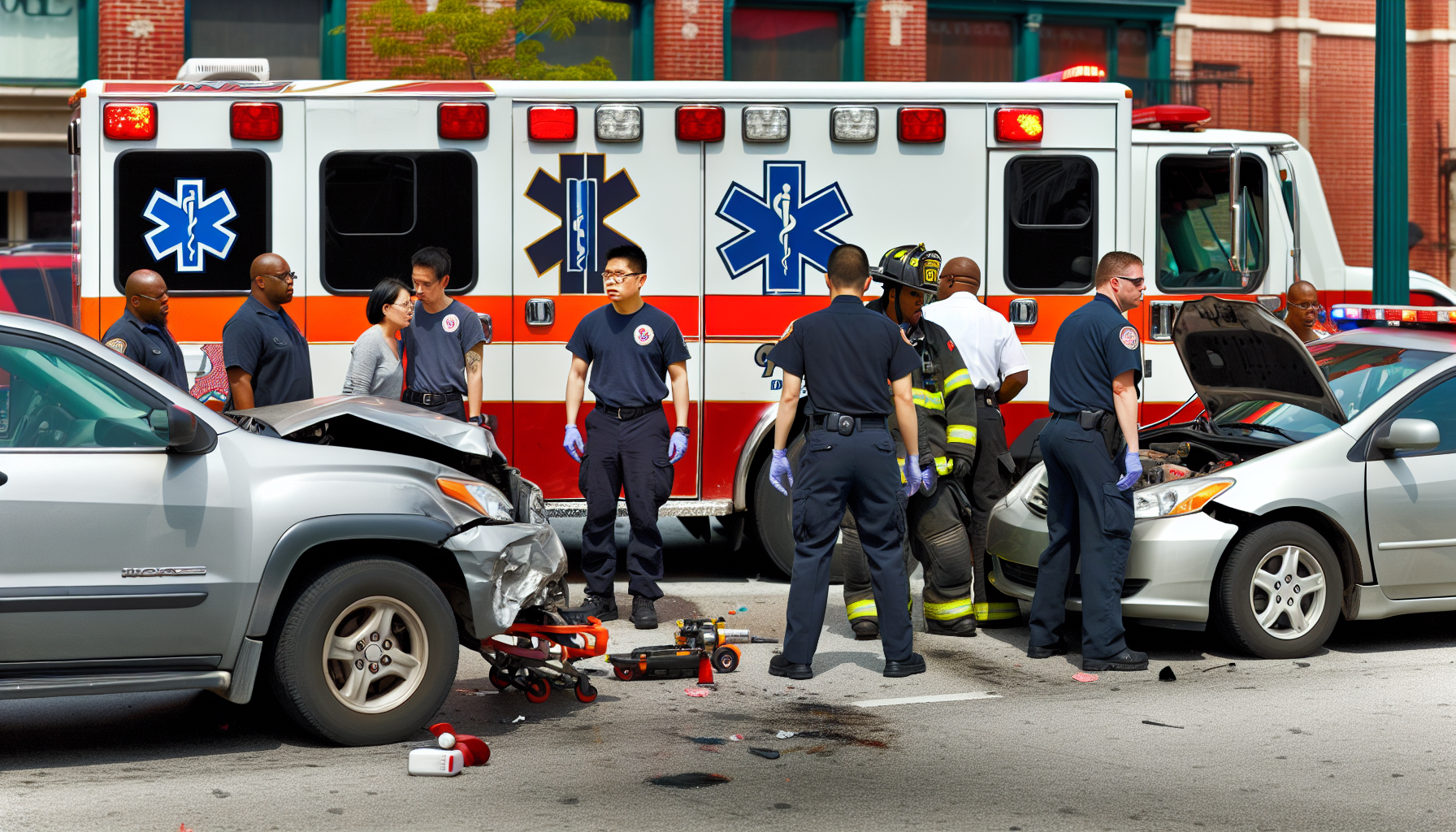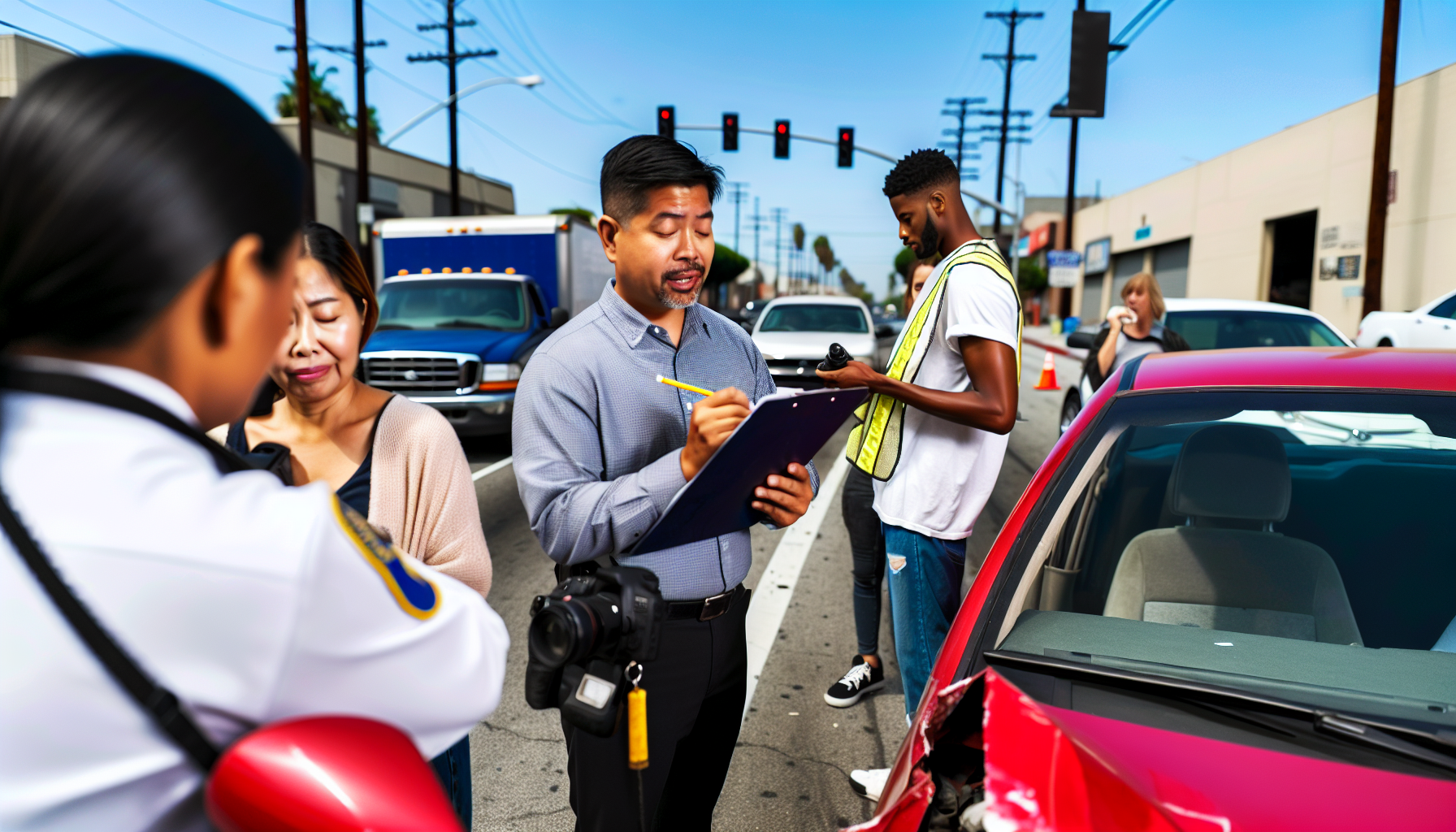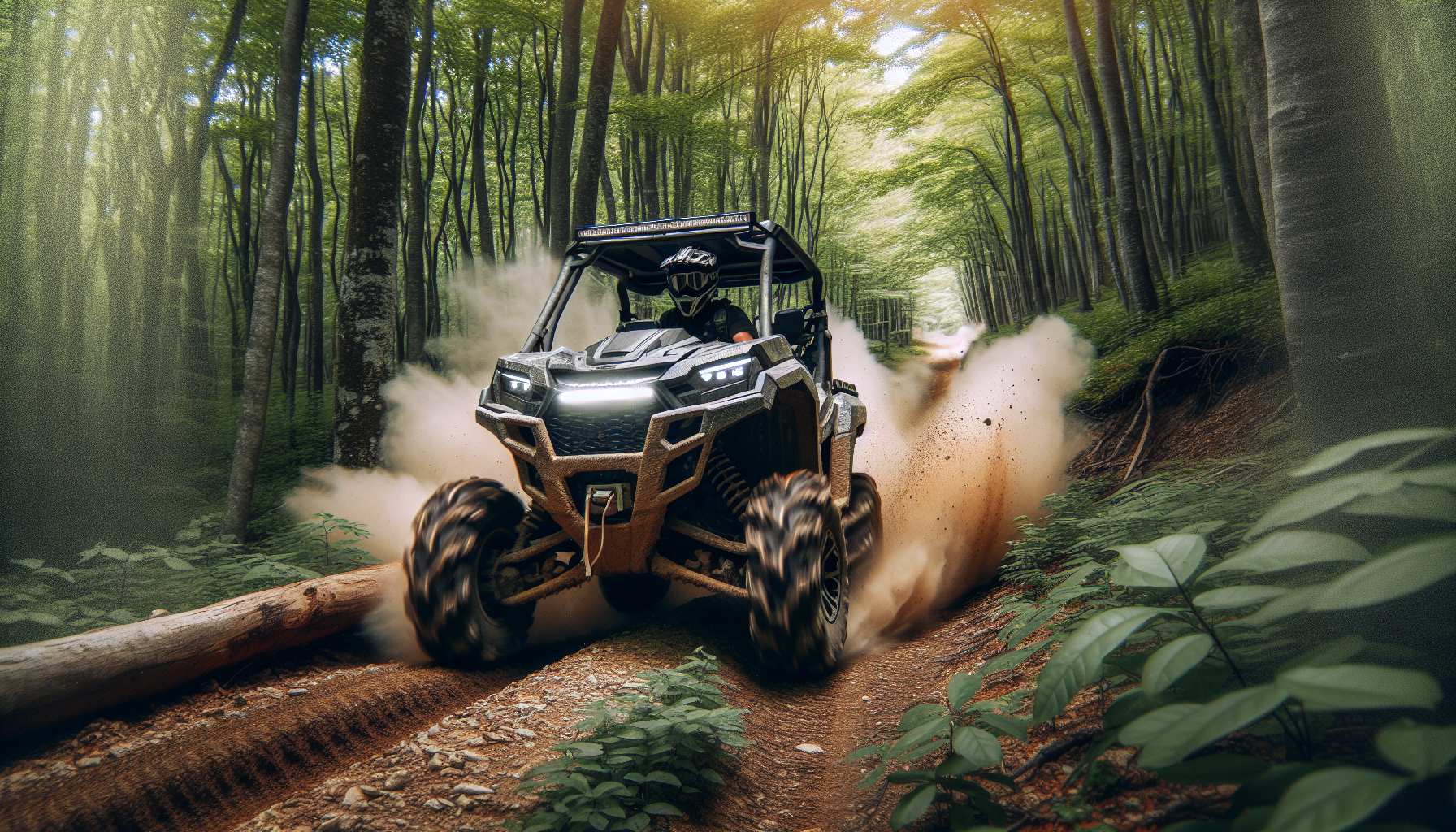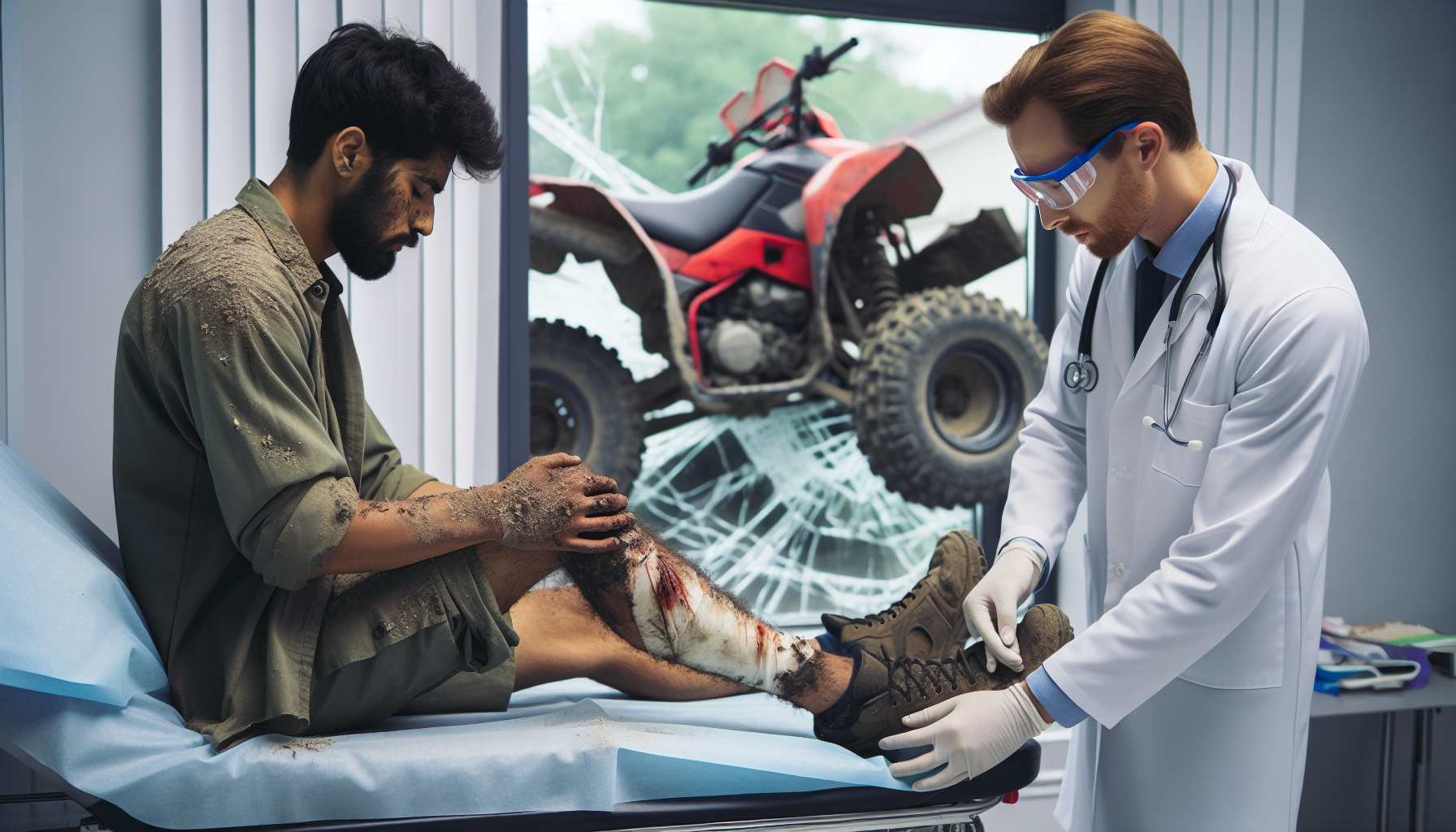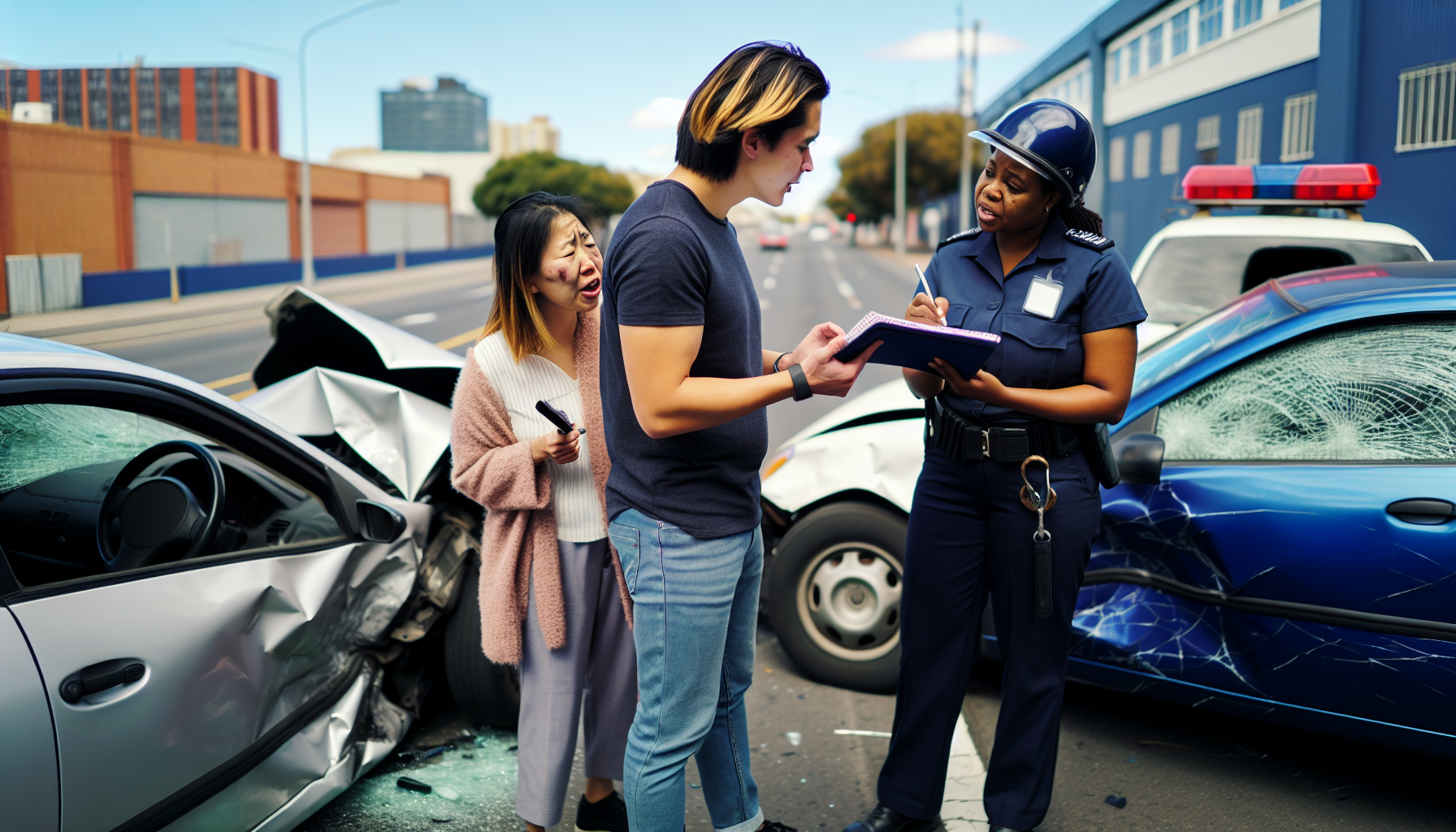ATV accidents can be a whirlwind of confusion, fear, and uncertainty. But, with the right guidance and knowledge on what to do after a side by side accident in Georgia, you can navigate the aftermath with confidence and ensure your rights are protected.
Key Takeaways
- Following an ATV accident in Georgia, it’s crucial to prioritize safety, seek immediate medical evaluation, document the scene comprehensively, contact emergency services, and know that some injuries may not be immediately visible.
- Understanding local ATV laws, such as operator requirements and usage restrictions, can affect the outcome of a compensation claim, and a formal accident report, along with insurance notification, are essential steps post-accident.
- A skilled ATV accident attorney can help navigate legal complexities, and understanding potential compensation, including economic and non-economic damages, as well as correctly identifying liable parties, is vital for a successful legal strategy.
Immediate Measures Following a Side by Side Accident
Imagine this: You’re out enjoying a sunny day riding your ATV, when suddenly, an unexpected obstacle causes a serious accident. In the immediate aftermath, adrenaline and shock may cloud your judgment. But remember, the actions you take in these critical moments can significantly impact your recovery, both medically and legally.
Prioritize safety, contact emergency services, and document the scene – these are the three pillars that will support your case and safeguard your well-being.
Check for Injuries and Prioritize Safety
An ATV accident can feel like a moment frozen in time – heart pounding, mind racing – but through the whirlwind of emotions, the importance of safety never diminishes. Check for injuries, not just on yourself but on others involved too. And remember, injuries might not always be visible. So, don’t let the lack of bleeding or broken bones fool you into thinking you’re unscathed. When in doubt, err on the side of caution. Take immediate action to address any potential injuries and prevent further harm.
Contact Emergency Services
Once you’ve assessed injuries and ensured everyone’s safety, the next step is to contact emergency services. Calling 911 isn’t just about reporting the accident; it’s also about securing professional medical help. Remember, even minor injuries can escalate if not treated timely. Furthermore, dialing 911 ensures a formal record of the accident is made, which can be valuable when seeking compensation later on.
So, don’t hesitate. Dial that number and provide the necessary details – your health and your case may depend on it.
Document the Scene
Now that you’ve checked for injuries and contacted emergency services, it’s time to play detective. Documenting the accident scene is crucial in building your case. Here’s what you need to do:
- Take photos of the location
- Take photos of the condition of the ATV
- Take photos of any visible injuries
- Take photos of any other vehicles involved
- Gather witness statements
- Collect contact details of the witnesses
Such documentation can act as persuasive evidence, aiding your ATV accident attorney in building a formidable case for compensation. Remember, the devil is in the details, so the more comprehensive your documentation, the better.
Understanding Georgia’s Off-Road Vehicle Laws
To effectively navigate the aftermath of an ATV accident, understanding Georgia’s off-road vehicle laws is key. These laws govern everything from the legal requirements for ATV operators to restrictions on ATV use. They’re designed to protect both ATV riders and the environment, and knowing them can significantly influence your atv accident cases.
After all, knowledge is power, and in this case, it could mean the difference between a successful claim and a dismissed one.
Legal Requirements for ATV Operators
In Georgia, freedom comes with responsibility. As an ATV operator, you’re required to meet certain legal requirements. These include age restrictions, safety gear standards, and designated areas for ATV operation. And remember, local government agencies can impose additional requirements for off-road vehicles on public roads.
Therefore, before you set off on the trails, ensure you’re familiar with these legal stipulations – your safety and legal position could hinge on this knowledge.
Restrictions on ATV Use
Georgia’s ATV laws aren’t just about what you can do; they’re also about what you can’t. And for good reason. These restrictions are in place to protect you, your fellow riders, and the environment by ensuring the use of proper protective gear.
For instance, ATV use is strictly prohibited in state parks. There are also restrictions on who can operate an ATV and during what times. Flouting these restrictions can lead to stiff penalties and potentially jeopardize your claim if you’re involved in an accident. So, play it safe and play by the rules.
Seeking Medical Evaluation After an ATV Crash
Just because you walked away from an ATV accident, doesn’t mean you walked away unscathed. While some injuries may be immediately apparent, others can take time to manifest. That’s why seeking medical evaluation after an ATV crash is crucial.
It’s not just about addressing immediate injuries; it’s also about identifying potential long-term health issues. So, whether you have a minor scrape or a serious injury, don’t skip that doctor’s visit. Your health is too important to gamble with.
The Importance of Prompt Medical Attention
In the aftermath of an ATV accident, time is of the essence. Every second counts, especially when it comes to medical attention. Prompt medical attention can be the difference between a speedy recovery and long-term complications. It can help diagnose and treat injuries, prevent further harm, and secure long-term care and rehabilitation.
Hence, don’t procrastinate. Procure medical attention right away – even for seemingly minor injuries. Future you will appreciate it.
Long-Term Health Considerations
Despite the chaos that might ensue immediately after an ATV accident, it’s critical to remain focused on the broader implications for atv accident victims. ATV injuries, such as serious injuries like spinal cord damage and traumatic brain injury, can have long-term health implications. These atv related injuries may require ongoing medical treatment, rehabilitation, therapy, and even lifestyle adjustments.
Recognizing these potential long-term health considerations is a critical part of the recovery process and can inform your legal strategy when seeking compensation for a personal injury claim.
Reporting Your Side by Side Accident
Reporting your side by side accident isn’t just about fulfilling a legal obligation; it’s about protecting your rights. By filing a police report and notifying your insurance company, you ensure that there’s an official record of the accident. This can be invaluable when seeking compensation, as it helps establish the facts of the case.
So, don’t delay. Report the accident as soon as you can, and kickstart the process of getting the compensation you deserve.
Filing a Police Report
Filing a police report might seem daunting, but it’s an essential step in the aftermath of an ATV accident. This report provides an official record of the accident, including vital information like:
- the date
- time
- location
- involved parties
- any charges or citations
It’s a cornerstone piece of evidence that can bolster your claim for compensation.
So, don’t shy away. Take the time to file that report, and ensure that the truth of your case is officially recorded.
Notifying Your Insurance Company
Notifying your insurance company after an ATV accident is more than just a formality. It’s about starting the claims process and ensuring that you’re covered for damages. But be wary. Insurance companies are notorious for trying to minimize their payouts. So, while it’s important to report the accident, it’s equally important to handle these interactions with caution.
Remember, you have the right to fair compensation. Don’t let anyone convince you otherwise.
Evaluating Potential Compensation
ATV accidents can lead to significant expenses. From medical bills to lost wages and property damage, the financial burden can be overwhelming. That’s where compensation comes in. By evaluating potential compensation, you can get a sense of what you might be able to recover. This includes both economic and non-economic damages, such as:
- Medical expenses
- Lost wages
- Property damage
- Pain and suffering
- Emotional distress
So, don’t underestimate the importance of this step. It can be a game-changer in your journey to recovery.
Economic Damages
Economic damages are the tangible costs associated with your accident. They’re the medical bills piling up on your kitchen table, the wages you’re losing while you’re out of work, and the cost of repairing or replacing your damaged ATV. Quantifying these damages can be straightforward, but it’s important to be thorough.
Make sure you account for all your expenses, both current and future. You deserve to be fully compensated for your losses.
Non-Economic Damages
While economic damages cover your tangible costs, non-economic damages compensate for the intangible losses you’ve suffered. This might include pain and suffering, emotional distress, or loss of consortium. These damages can be more challenging to quantify, but they’re just as real and just as deserving of compensation. So, don’t overlook them.
Your pain and suffering matter, and you deserve to be compensated for them.
Partnering With an Experienced ATV Accident Attorney
Navigating the aftermath of an ATV accident can be complex and overwhelming. That’s where an experienced ATV accident attorney comes in. They can provide invaluable guidance and support, helping you navigate the legal landscape and fight for the compensation you deserve.
So, don’t go it alone. Partner with an Atlanta ATV accident lawyer who understands the intricacies of ATV accidents and who can champion your rights every step of the way, including handling your ATV accident lawsuit as a skilled personal injury lawyer.
Free Consultation Offerings
Many ATV accident attorneys offer free consultations. This gives you the chance to discuss your case, explore your legal options, and decide if the attorney is a good fit for you. It’s a no-strings-attached opportunity to gain valuable insights and advice.
So, take advantage of it. Schedule a free consultation and start exploring your legal options today.
Contingency Fee Structures
One of the benefits of hiring an ATV accident attorney is that many operate on a contingency fee basis. This means you only pay if they successfully recover compensation on your behalf. It’s a win-win scenario that ensures you have access to quality legal representation, regardless of your financial situation.
Hence, don’t let the fear of expenses prevent you from obtaining legal counsel. A contingency fee arrangement allows you to seek justice without putting a dent in your finances.
Establishing Liability in Your Side by Side Accident Case
Establishing liability in an ATV accident isn’t always straightforward. It involves identifying the liable party, which could be the driver, owner, or even the manufacturer of the ATV. Additionally, Georgia’s comparative negligence laws may come into play, potentially reducing your compensation if you’re found partially at fault. So, don’t take this step lightly. Understanding liability is key to building a successful case.
Identifying the Liable Party
Identifying the liable party in an ATV accident is a critical step in your legal journey. Whether it’s the driver, owner, or manufacturer of the ATV, determining liability can significantly influence your case. It’s about piecing together the puzzle and identifying who’s responsible for the accident. And remember, more than one party may be liable. So, don’t rush this process.
Invest the necessary time to pinpoint all possible parties at fault and ensure they are held responsible.
Comparative Negligence in Georgia
Georgia’s comparative negligence laws can be a double-edged sword. On one hand, they allow you to recover compensation even if you’re partially at fault. But on the other hand, they can reduce your compensation based on your percentage of fault.
Understanding these laws and how they apply to your case is crucial. It can help you prepare for potential hurdles and ensure you’re not unfairly penalized.
Protecting Your Rights Post-Accident
In the aftermath of an ATV accident, it’s crucial to protect your rights. This involves careful communication with insurance companies, who may attempt to undervalue your claim, and avoiding quick settlement offers that may not fully compensate you for your damages. Remember, you have rights, and it’s important to protect them.
So, tread carefully in your post-accident dealings and make sure your rights are upheld every step of the way.
Communicating with Insurance Companies
Insurance companies can be tricky to navigate. They have their own interests to protect, and they may not always align with yours. That’s why it’s important to communicate cautiously with them. Be careful what you say and don’t disclose more than you need to. If you’re unsure about something, don’t hesitate to consult with your attorney. They have the expertise to handle these interactions and can ensure your rights are protected.
Avoiding Quick Settlement Offers
In the wake of an accident, a quick settlement offer might seem like a lifeline. But beware: these offers may not fully compensate you for your damages. Insurance companies often use quick settlement offers to close cases quickly and cheaply.
Before accepting any offer, ensure you consult your attorney. They can assist you in assessing the offer and deciding whether it’s beneficial for you to accept.
Summary
ATV accidents can be a whirlwind of chaos and confusion. But with the right knowledge and guidance, you can navigate the aftermath confidently and ensure your rights are protected. Whether it’s checking for injuries, reporting the accident, or hiring an experienced ATV accident attorney, every step you take can significantly impact your recovery and your case.
Frequently Asked Questions
How long do I have to file a claim after an accident in Georgia?
You have up to two years to file a claim seeking financial compensation after an accident in Georgia, and up to four years to seek recovery for property damage only. It’s important to act within these timeframes to protect your rights.
Is Georgia a no fault auto accident state?
No, Georgia is not a no-fault state for auto insurance claims. This means the at-fault driver’s insurance pays for damages and injuries.
Which of the following must you do if you are involved in an accident?
The most important thing is to make sure that everyone involved is OK, call 911 if there are injuries, and seek medical attention as necessary.
What happens after a car accident not your fault in Georgia?
After a car accident not your fault in Georgia, you can seek the full amount of damages from the at-fault driver’s insurance company, including medical expenses, property damage, pain and suffering, and lost wages.
What should I do immediately after an ATV accident?
Immediately after an ATV accident, prioritize safety, contact emergency services, and document the scene for insurance and legal purposes.


